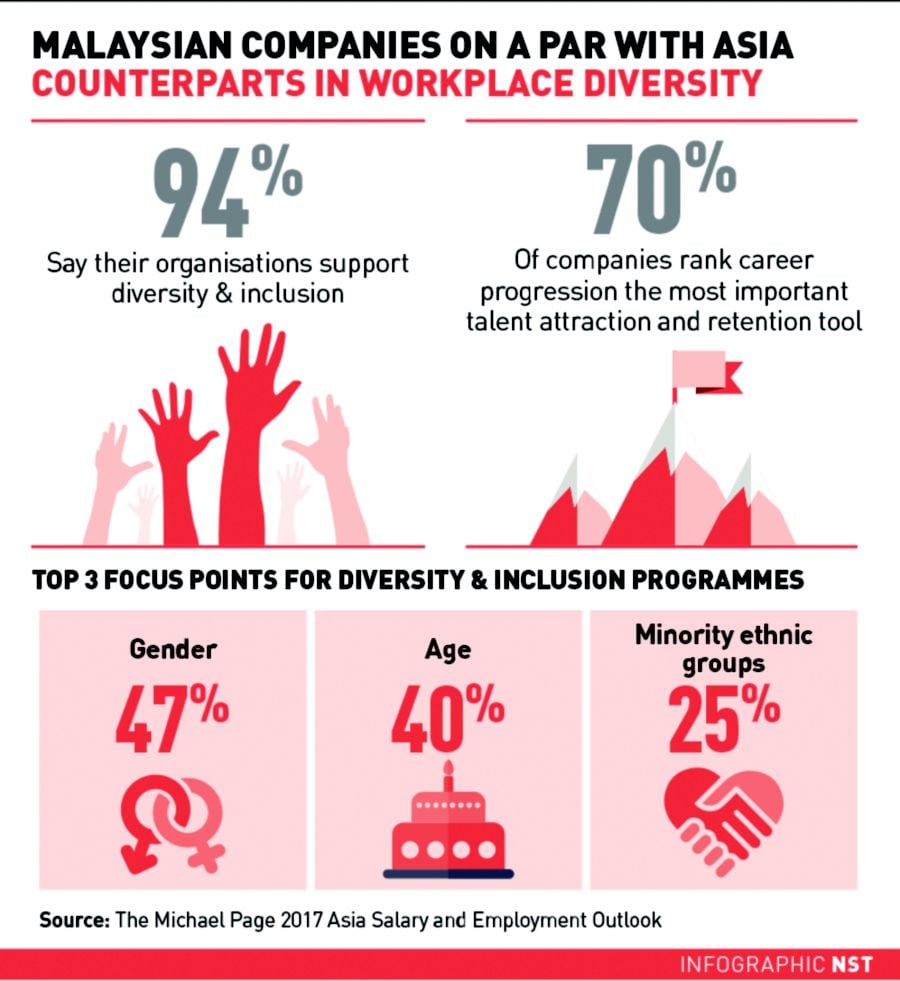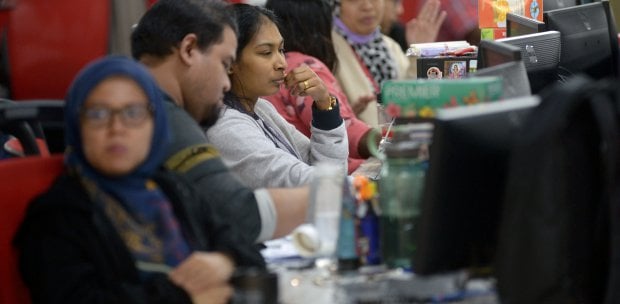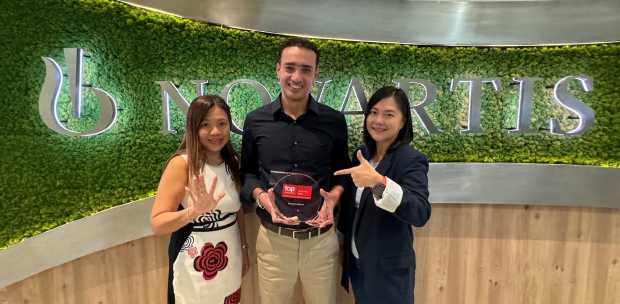KUALA LUMPUR: Diversity and inclusion (D&I) efforts are gaining a strong foothold in the private employment sector.
A recent study by a recruitment specialist revealed that 94 per cent of about 560 Malaysian companies across industries are supportive of D&I efforts.
The study by Michael Page, titled 2017 Malaysia Salary and Employment Outlook, indicated that Malaysia, which scored an average of 93 per cent, was on a par with other six Asian countries in the survey.
It also found that the focus areas for D&I efforts were gender (47 per cent), age (40 per cent) and minority ethnic groups (25 per cent).
Michael Page Malaysia director Chan May Wah said in an employment market like Malaysia, where hiring managers faced a limited candidate pool, while attracting millennial workforce could be challenging, companies must identify ways to expand the scope of their hiring strategies.
“I believe D&I efforts are also part of employee-retention strategy. If you have a diverse talent pool in your company, regardless of background, people will be attracted to your organisation,” Chan told the New Sunday Times.
On gender, she said the government’s support towards the advancement of women in the workplace had created a conducive environment to address work-life balance challenges for female employees, adding that, however, there were still a lot to be done to address gender imbalance.
“We need to hear more success stories from women at leadership level,” she said.
On age, Chan also believed that meritocracy should be the only way to reward employees instead of their years of service.
“You can see younger leaders and managers in companies where seniority is not necessarily a determining factor for senior positions,” she said.
By giving less emphasis on age, Chan said, companies could also widen the talent pool and attract quality candidates.
“Michael Page, for example, believes in organic growth of its emloyees. Regardless of your age, if you perform well, you will have a chance to move up the corporate ladder,” she said.
Managing director of professional services firm Towers Watson Malaysia, Lim Chin Han, said D&I efforts would create a supportive environment that maximise employees’ potential.
“It is about encouraging and enabling all employees to draw on their talents, skills and experience for the benefit of the business. An inclusive culture occurs when differences are valued, people are treated fairly, feel accepted and respected, while opportunities are open to all,” he told leadership portal leaderonomics.com.
Lim said to create the infrastructure for such an environment, explicit policies and programmes needed to be put in place.
“Senior leadership and middle management set the example, while clear expectations for behaviour and actions help all employees to ‘walk the talk’ on a daily basis,” he added.
Companies, however, needed to do better by consistently communicating with employers, employees and human resource (HR) department to ensure that everybody was on the same page, said Chan.
“Companies should look beyond pre-judging resumes or curriculum vitaes to attract different talents.
“Once you have a very diverse business, you can then share the success. When people see the impact, you will have a much better positioning to attract more diverse backgrounds in talents,” she said.
D&I programmes could also open up the talent pool, Chan said, but employers must be willing to invest in training their hires.
“It is a decision that the company needs to make. The candidates might not have all the attributes the employers are looking for, so you must be willing to groom and develop them.”
British High Commissioner to Malaysia Vicki Treadell, who was a panellist during the Global Transformation Forum 2017 held here last month, said the right political will and legislation could bring transformational changes, apart from having compassionate and conscious leadership.
“Whether (the approach is) bottom-up or top-down, the government has a very important role to play and it comes down to legislation to use the force of law.
“If the law is with you, you can stand up against discrimination,” she added.






